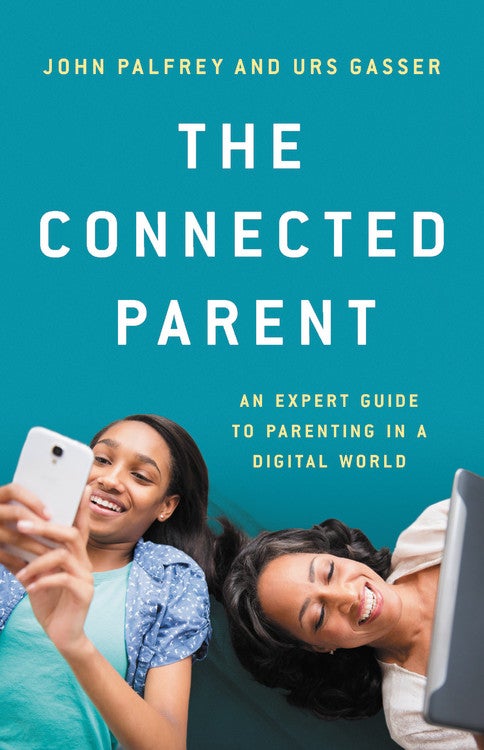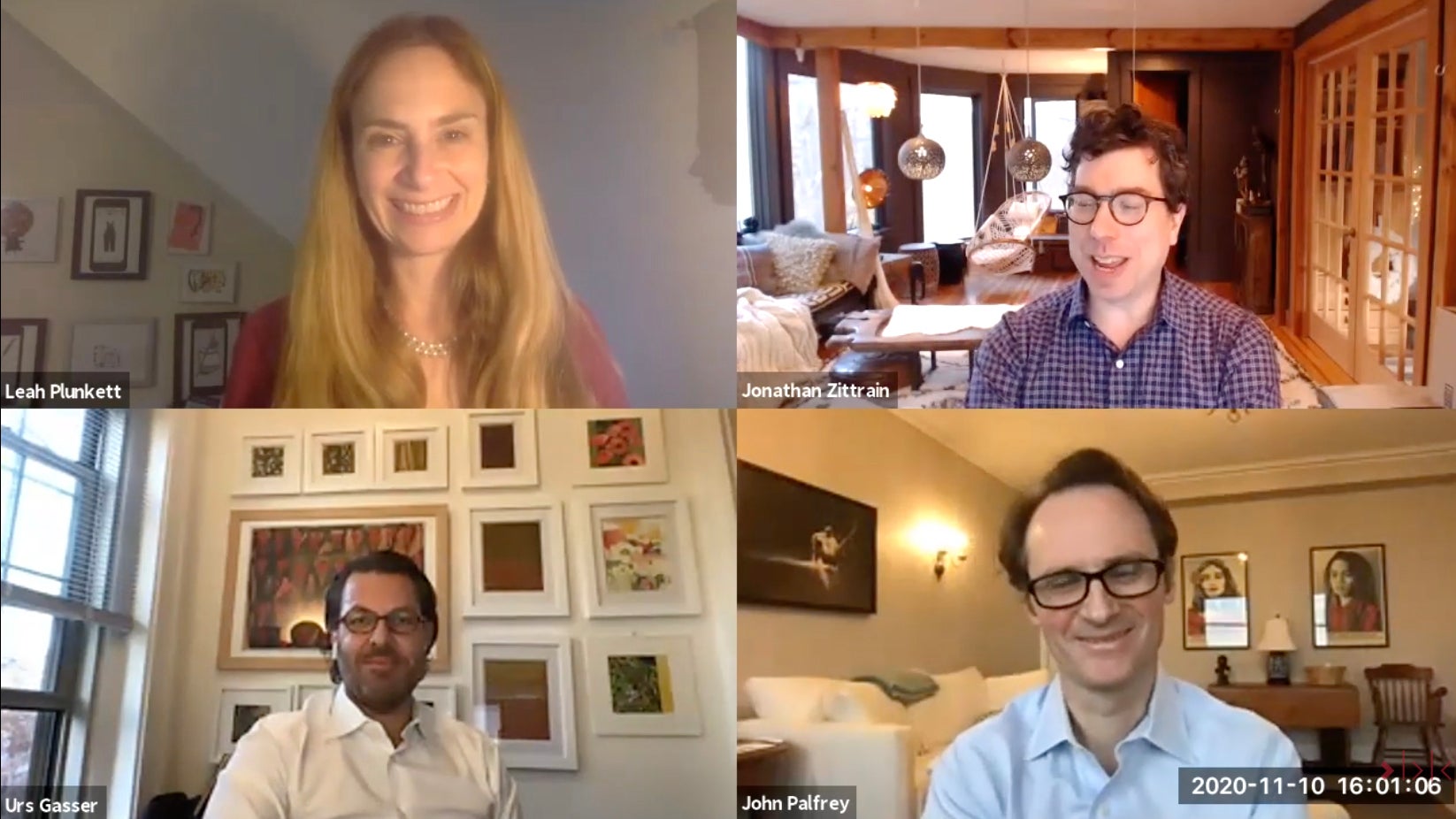The reliance on the internet to learn, work, and be social was already a concern in recent years, but has become even more of an issue during the COVID-19 pandemic. “The Connected Parent,” a new book by John Palfrey ’01 and Urs Gasser LL.M. ’03 is a practical guide for addressing such concerns and navigating an increasingly digital world.
Palfrey, the president of the John D. and Catherine T. MacArthur Foundation, and Gasser, the executive director of the Berkman Klein Center for Internet & Society, discussed the book at a recent event co-hosted by the center and the Harvard Law School Library. Jonathan Zittrain ’95, the George Bemis Professor of International Law and co-founder of BKC, introduced the talk, which was moderated by Leah Plunkett ’06.

“The Connected Parent” is research-based and draws from sources including BKC’s Youth and Media project, as well as personal experiences. “The idea behind this Connected Parent philosophy is relatively straightforward. The first and most important dimension of it is to keep communication lines open with our children,” Gasser said, encouraging parents to learn and really listen about children’s experiences online, familiarize themselves with the platforms and apps their children frequent, and the contexts in which they are using technology.
“These connections between the parent and the young person, the connections between parents and the technology—and in the sense of a network approach—the parent, the young person, and the world around them are at the core of this Connected Parent approach,” said Gasser.
In the book, Palfrey and Gasser also propose the “Goldilocks principle” to screen time: “The basic idea of course being not too hot and not too cold, and having a nice warm balance,” Palfrey explained. “We make this argument throughout the book in a number of ways, which is that it is neither a good idea to demonize the technology or give the technology too much agency itself, nor to fantasize it and just assume that because we have internet everybody’s now brilliantly educated. We know from decades of studying this that neither of those is true. Trying to find a synthesis in the middle and a clear pathway through is what we’re aiming for in the book.”
Plunkett, herself the author of a 2019 digital parenting book called “Sharenthood,” also shared her thoughts on children and privacy. She proposed parents should think twice before sharing information about their children online and that families take stock of the devices in the house and openly discuss norms around using them.
“I do think when it comes to privacy, we focus now [in this conversation] a lot on the relationship between parent and child,” Gasser added. “The biggest challenge I think, where parenting is so difficult is when it comes to the larger question of our data world that we live in. Some call it surveillance capitalism as a larger context around us, the business models that drive some of the tech firms that give us the services and hardware that you’re using and our children are using.” Gasser argued that the question of commercial use of data and privacy is an example where a parenting approach reaches its limits and where, instead, stronger privacy laws are needed.
On the theme of privacy and security, Plunkett asked about cyberbullying during virtual schooling. Palfrey first emphasized the importance of maintaining relationships with students and teachers for the well-being of students.
“Separating it totally between cyberbullying and just bullying doesn’t make a lot of sense,” Palfrey said. “And this is one of those great examples where, to young people, there’s not an offline life and then an online life, it’s just life.”
While there are risks and challenges associated with digital parenting, throughout the talk, Palfrey and Gasser stressed an empathetic and optimistic approach to learning from and listening to young people. Gasser, for instance, called young people “connection entrepreneurs” for forging new ways to build relationships and engage with each other.
“Being able to do something that you haven’t done before and do it with a kid and listen to them, it’s actually a really joyful thing,” Palfrey said. “And I think given how complex the world is and how many different apps there are, there’s an endless opportunity for that kind of fun.”
